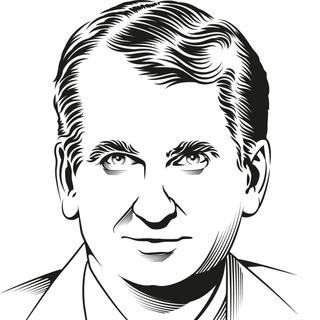


Timothy Snyder: 'Americans are killing themselves with their misunderstanding of freedom'
ConversationIn an interview with Le Monde, the American historian argues that the US has a distorted idea of what freedom is, despite it being the country's most cherished value.
A historian specializing in Central Europe and the Holocaust, Timothy Snyder is a professor at Yale University and a researcher at the Institute for the Humanities in Vienna. His books include Bloodlands: Europe Between Hitler and Stalin and Black Earth: The Holocaust as History and Warning. His latest book is On Freedom.
This interview has been condensed for clarity.
You've devoted your career to state violence, with a particular interest in the Holodomor, the great famines organized by Stalin in Ukraine in the 1930s, and the Holocaust. Why are you now turning your attention to freedom?
Because freedom is the real challenge. When I wrote Bloodlands: Europe Between Hitler and Stalin and Black Earth: The Holocaust as History and Warning, I was trying to solve what I took to be the central historical problem of the 20th century. Why were such political atrocities possible? And when I wrote On Tyranny: Twenty Lessons from the Twentieth Century, which is the political pamphlet I was trying to explain how one could prevent terrible things from happening. But in a sense, all of that dodges the essential human question, which is what is the good thing that we're trying to preserve? What is it actually? And rather than how do we defend it right now, how do we create the conditions in which it can endure?
In your book, you speak out against the dominant US definition of freedom, a so-called negative freedom, since it is based on the absence of hindrance, particularly from the state. Why do you question it?
Negative freedom is a very simple, elegant idea. And like a lot of bad ideas, it's seductive because of its elegance. The notion is that freedom is simply a matter of the absence of barriers or the absence of oppression. This is a half-truth which, if it is treated as the full truth, becomes an untruth. So it is of course correct that there shouldn't be barbed wire around you. But the reason for that is not the barbed wire, the reason for that is you. And when we remove the barbed wire, there's still the question of who you are, what you will become, what you value, how you will realize those values. And so when we think of freedom as just a matter of removing the obstacle, we're dodging the question of the human. To shift from negative to positive freedom, one has to focus not on the barrier, but on the human and ask the harder question, which is what do we need beyond removing barriers to be free? We need a sense of safety, we need a sense of shelter, we need to have other people around us, we need to be educated. And all of these things are essential to freedom. What I'm after here is treating freedom as something which is not just a matter of resistance, but rather a matter of creation, where the reason we care about it is not just that it could be violated. The reason we care about it is because it's beautiful and true and enabling.
You have 65.53% of this article left to read. The rest is for subscribers only.
